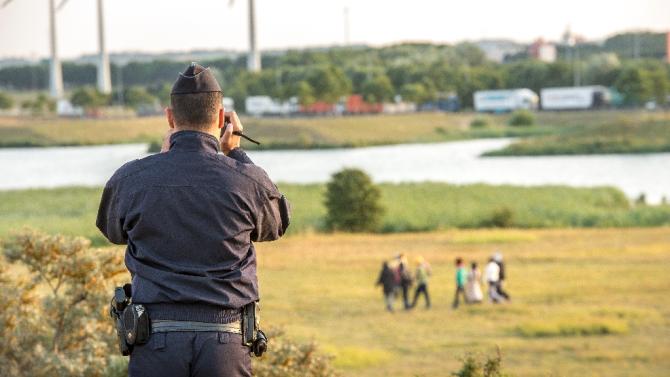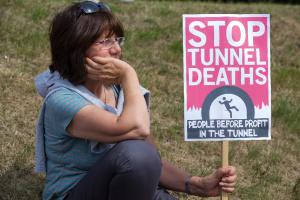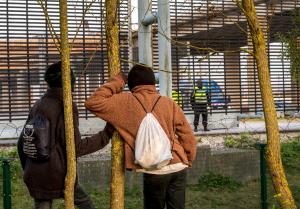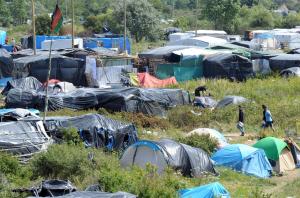Date: Sun, 2 Aug 2015 21:19:02 +0200
Paris (AFP) - France and Britain vowed Sunday that a cross-Channel migrant crisis was their "top priority" in a united front that belied simmering anger over an issue which has become a political hot potato.
Heightened security has curbed the number of attempts by migrants in the port city of Calais trying to make it through an undersea tunnel to Britain, with only 400 bids Saturday night, a police source said, compared to 2,000 earlier in the week.
Around 3,000 people from Africa, the Middle East and Asia are camped in Calais hoping to smuggle themselves into Britain, and the costly crisis has strained ties across the Channel.
"Tackling this situation is the top priority for the UK and French governments," French Interior Minister Bernard Cazeneuve and his British counterpart Theresa May said in a statement published in France's Journal Du Dimanche and Britain's Telegraph newspaper.
"We are committed and determined to solve this, and to solve it together."
However politicians were less conciliatory on the ground, with those in Britain accusing France of security failings, while London was accused of making it too easy for migrants to work illegally, this luring them to its shores.
The mayor of Calais Natacha Bouchar, from the opposition Republicans party, accused the British of "imposing their laws on our border and it is becoming unacceptable."
"The British government must agree to quickly reconsider its controls of the labour 'black market' -- because that is why the migrants go to the United Kingdom -- and open a transit zone or refugee camp on their territory to filter the migrants themselves."
Her comments came after former employment minister Xavier Bertrand, said that if Britain failed to improve the situation "let's let the migrants leave and let Mr (David) Cameron handle his politics in his own way, but on his own island."
- Blame trading -
At least 10 migrants have died since June in the nightly attempts to find a way onto a train or a lorry headed for Britain -- seen as a better economic option by migrants, many of whom do not speak French.
The incursion attempts on Saturday night saw traffic blocked for five hours, a Eurotunnel spokesman said, adding the measure was taken for the security of both clients and migrants.
The spokesman said the migrants had changed tactics and instead of making a dash into Eurotunnel premises in small groups, were attempting to storm security barriers in large numbers.
In Britain, politicians reminded Cameron of the soaring economic cost of the traffic chaos, demanding more compensation from the French.
Acting Labour Party leader Harriet Harman said the crisis was costing hauliers 700,000 pounds (900,000 euros) a day.
"It is wrong for UK businesses and families to face these costs given border security failures in France," she wrote in a letter to Cameron.
"Your discussions with the French government should therefore include a request for compensation backed up by any diplomatic pressure that may become necessary."
- Streets not paved with gold -
Earlier this week, the British government pledged 10 million euros ($11 million) to improve fencing around the Eurotunnel rail terminal in Coquelles, outside Calais.
And Cameron, who has warned that the crisis could last all summer, promised "more fencing, more resources, more sniffer dog teams" to aid French police in their nightly cat-and-mouse game with the migrants.
The new measures sent "a clear message", according to Cazeneuve and May.
"Our border is secure, and there is no easy way into the UK," they wrote.
They said the world was facing "a global migration crisis" that required a European and international response, and warned that the burden of tackling the problem should not lie with Britain and France alone.
"Many of those in Calais and attempting to cross the Channel have made their way there through Italy, Greece or other countries," the pair wrote.
Ultimately, the crisis had to be addressed at the roots by "reducing the number of migrants who are crossing into Europe from Africa" for economic reasons.
"Our streets are not paved with gold," they said, adding that both governments were currently sending back around 200 migrants a month who do not qualify for asylum.




